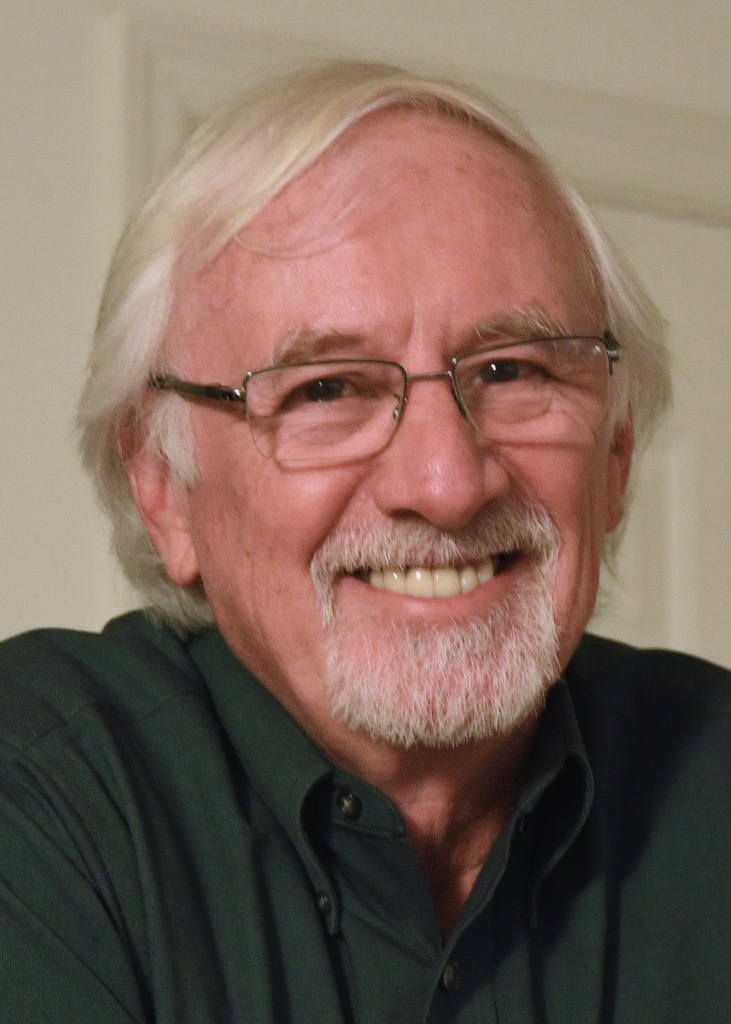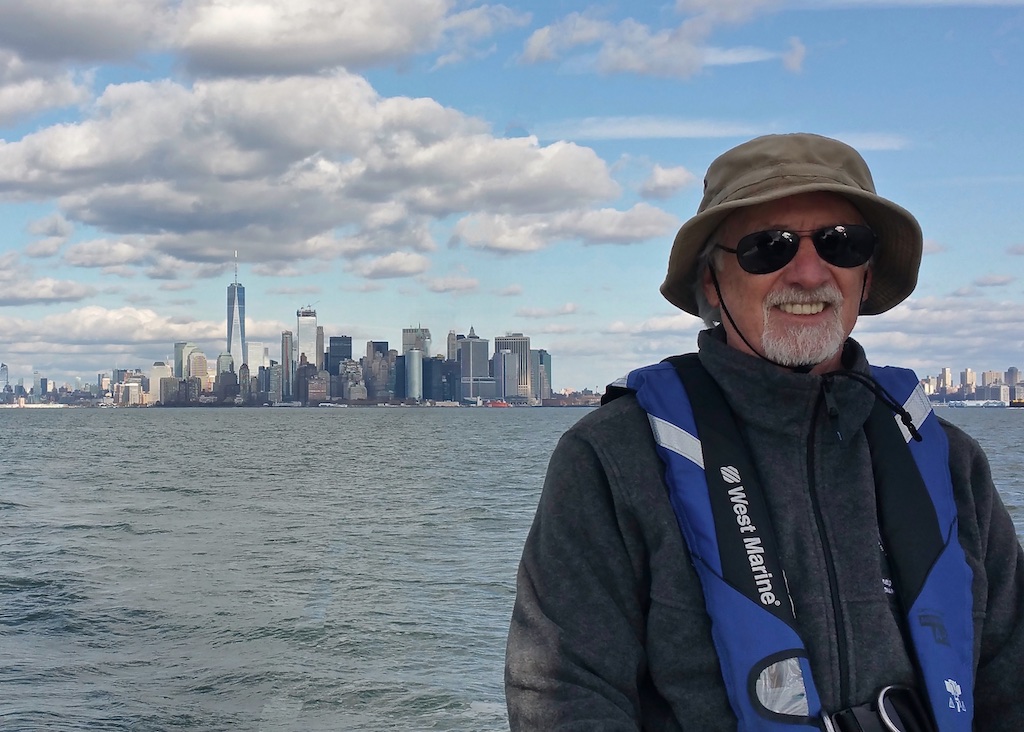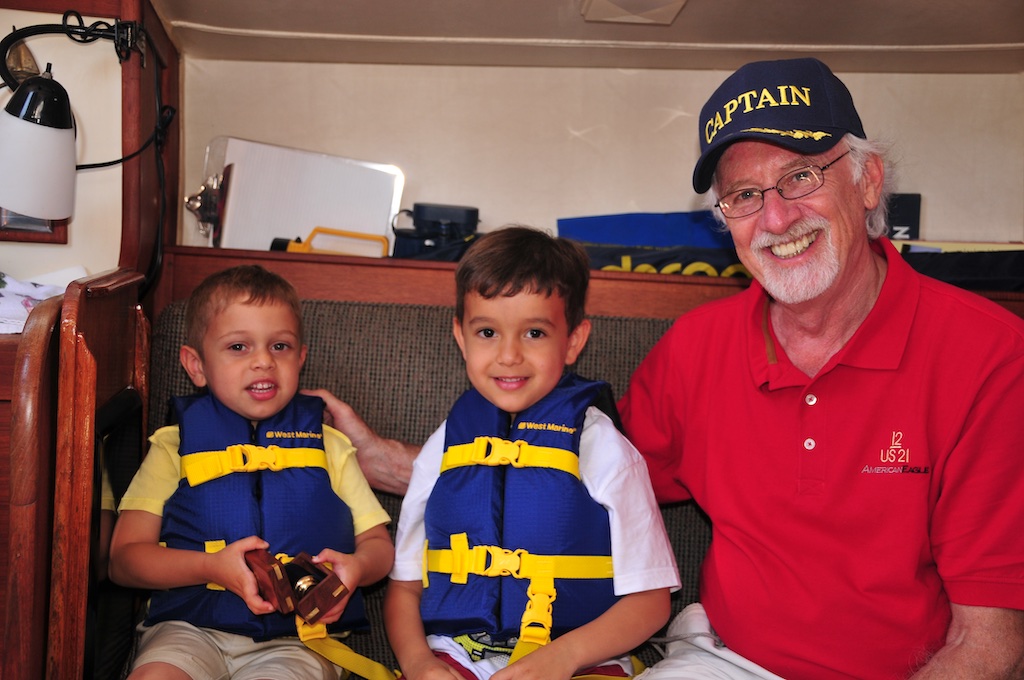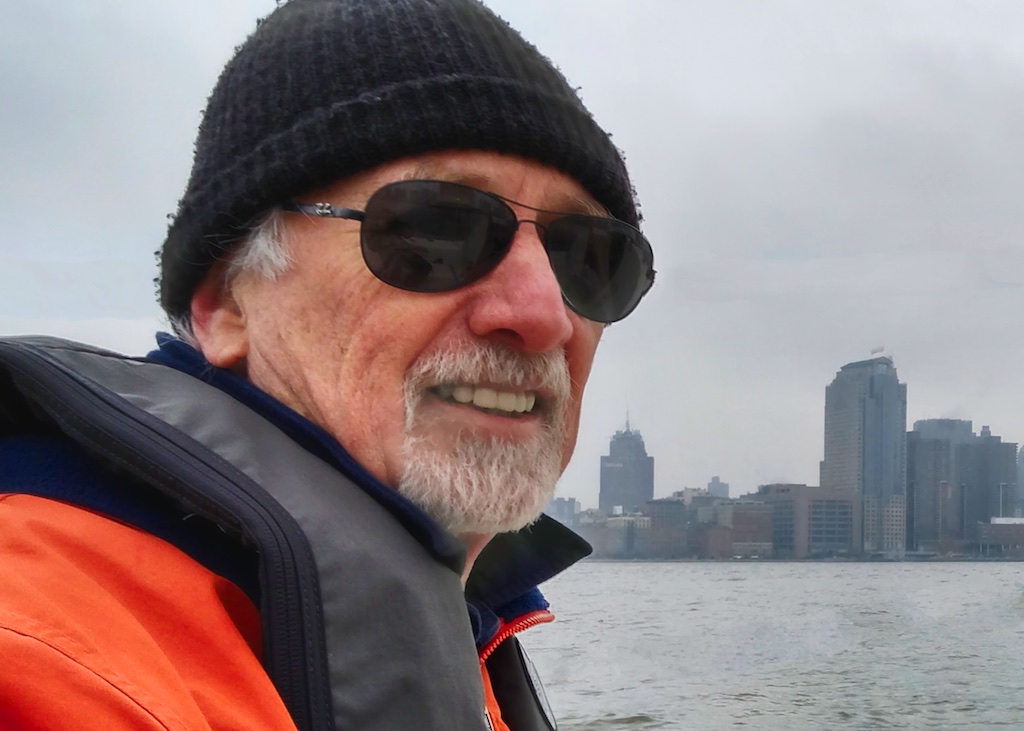Catching Up With . . . Steve Crane

From Particles to PAs to Pandemics
by Brooke C. Stoddard '69
 Steve was born in Waterbury, Connecticut, the last in a direct line of Crane males born in that state back to the 1660s. He grew up in Woodbury and studied at The Pomfret School in Connecticut’s northeastern region. In his Junior Year he was selected to be one of 12 high school students to participate in a study-abroad program funded by the Ford Foundation. This program annually took high school juniors to explore different parts of the world and then report back to fellow high school students on what they had learned. The goal of the program was to increase understanding of global issues at the high school level around the country.
Steve was born in Waterbury, Connecticut, the last in a direct line of Crane males born in that state back to the 1660s. He grew up in Woodbury and studied at The Pomfret School in Connecticut’s northeastern region. In his Junior Year he was selected to be one of 12 high school students to participate in a study-abroad program funded by the Ford Foundation. This program annually took high school juniors to explore different parts of the world and then report back to fellow high school students on what they had learned. The goal of the program was to increase understanding of global issues at the high school level around the country.
In the summer of 1964 the program went to Europe to study the early stages of European economic, social and political integration. Steve’s group traveled to seven countries and 13 cities to meet and talk with major European leaders in the integration movement. Steve’s interest in science led him to focus on efforts to increase international research on particle physics at CERN (European Organization of Nuclear Research) in Geneva, Switzerland. Steve explored the question of how to bring nations together to fund very expensive “big science” that might not produce societal benefits for years to come. This is an issue that continues to intrigue him to this day.
Steve believed an education at Princeton would prepare him for a career in the foreign service specializing in science policy. Courses in the Politics Department helped him understand the origin and development of public policy at the international and national levels. Courses in the History Department, and most especially the history of science, allowed him to explore the evolution of scientific knowledge in a number of different fields. Professor Thomas Kuhn, author of the influential book Structure of Scientific Revolutions, had a great impact on Steve’s thinking. Says Steve: “Kuhn was asking important questions: Where do break-through ideas in science come from? How do these ideas develop and become ‘accepted?’ How are long-standing and well-accepted theories overthrown? How much of change in theory is science, and how much is politics?” During Junior Year, Steve received a grant from the Woodrow Wilson School that allowed him to continue his exploration of the politics of particle physics funding in Europe while doing research at the British Museum Library in London and CERN in Geneva. This work ultimately became the basis for his Senior Thesis.
Nearing graduation, Steve was accepted to do graduate work at Tufts’ Fletcher School of Law and Diplomacy, but his admission had to be deferred due to a pending commitment to enter Navy OCS. Fortunately, Steve had also been accepted into the Management Intern Program at the National Institutes of Health. He entered the program while waiting to go to OCS and eventually was hired as a Legislative Analyst in the NIH Director’s Office. As recounted by Steve, a whole new world of science – medical science – opened up for him that he found as intriguing and as complex as the world of physics. And this world was much more connected to the immediate needs of society at all levels. The medical world became the focus for his work the rest of his career.
Due to a previously unknown medical condition found during a pre-enlistment physical for OCS, Steve was rejected for OCS and subsequently also rejected for the Army. In the meantime, Steve had married and followed his wife to Boston where coincidentally she attended the Fletcher School. After a year they moved from Boston to Ann Arbor so Steve could pursue his graduate work in health policy at the University of Michigan. Steve studied first at the Institute for Public Policy Studies, but transferred to the School of Public Health where he earned a Master’s Degree in Health Planning and a PhD in Public Health Administration with a focus on health policy, health economics, and health services research. Steve took the long road in finishing his thesis not because he was suffering from the affliction of “Anything But Dissertation,” but because he was totally consumed in helping to make state health policy.
Steve’s graduate work was largely funded by one of the first grants made by the Robert Wood Johnson Foundation (RWJF). The Foundation was interested to see if the quality of health policy at the state level could be improved by creating greater access to more and better policy-relevant information. At the time, many state legislatures were only part-time and few, if any, had professional staff. As a result, policy was often created by well-heeled special interest groups that had the time and the money to “help state legislators formulate policy.” The Foundation wanted to see if linking the information resources of a university to state policy-makers could help them make more informed and better-balanced policy decisions.
As part of the RWJF grant, Steve served as the link between the vast information resources of the University of Michigan and the State Legislature and Governor’s Office working through the Public Health Statute Revision Project (PHSRP). PHSRP succeeded in re-drafting all of Michigan’s public health statutes and all of its health profession regulatory laws in less than two years in part due to the infusion of university resources. The Legislature came within a few votes of adopting those revisions within the two-year timeframe of the project. Ironically, it was the pressure of a special interest group that caused the revision package to fail. The revisions ultimately were made law the next year. The lessons learned by Steve not just in how to craft policy but also how to work in the political system to get policies adopted were a doctoral education in itself. His experience led to his appointment as Assistant Professor at Michigan’s School of Public Health where he created and taught an innovative course on “Techniques of Political Analysis and Influence.” The goal of the course was to help make health professionals and administrators more effective advocates for change.
One of the policy areas of greatest interest to Steve was health professions regulation. Licensure laws and regulatory policies have a direct and immediate impact on the quantity, cost and quality of available health services. Steve became a champion of the emerging profession of Physician Assistants with all the potential this profession held to improve the delivery of health care and to extend the productive life and capacity of physicians. The revisions made to Michigan’s professional regulatory statutes enabling PAs to practice became a model for PA regulation that ultimately was adopted by 35 states.
As we all know, life and plans rarely move in straight lines. To help care for his ailing mother in Connecticut, Steve and his family moved to Boston where he joined Boston University’s Health Policy Institute. Steve worked with the Academic Vice President for Health Affairs to administer the Pew Health Policy Doctoral Program run jointly with Brandeis University. The Pew program took highly skilled individuals in health policy and administration and fast-tracked them through doctoral training to augment their knowledge and capabilities to help their work in advancing health policy formulation. Many of the people in the program equally could have been faculty as students. Similar programs were offered at the University of Michigan, RAND/UCLA, and UCSF. The graduates of these programs have played a major role in shaping United States health policy over the last three decades. In addition to his administrative responsibilities, Steve also served on the faculty of the Boston University School of Public Health and as Assistant Academic Vice President for Health Affairs.
Realizing once again that doing health policy was as rewarding as teaching it, Steve returned to Washington, D.C. to serve as Vice President of the Association of Health Services Research (AHSR). Steve relates: “In addition to representing health policy professionals, AHSR served as the principal lobbying organization advocating for the Agency for Health Care Policy and Research (AHCPR). The mission of AHCPR was to develop a base of knowledge that would promote more effective health policy for the nation." Among his many responsibilities at AHSR, Steve served as the administrative director for two important grant programs -- the Picker/Commonwealth Patient Centered Care Program and the Robert Wood Johnson Health Policy Fellows Program.
As fate would have it, the position of EVP/CEO of the American Academy of Physician Assistants (AAPA) came open and Steve was selected for that position. For 14 years he led the organization representing the profession he had helped to create, both growing the organization and finding ways for PAs to improve the delivery of physician services nationwide. The position allowed him to use all of his knowledge of policy and political processes to help advance national health policy. According to Steve, it was truly an honor and a privilege to serve in this capacity as well as to be part of such an important movement for change in the structure of the health care system.
 As potential retirement years approached, Steve wanted to be closer to his two children living in New York. In 2007 he accepted the position of Executive Director of the American Thoracic Society (ATS) based in Manhattan. He took the job for five years but stayed eleven. The ATS is an international medical professional and scientific organization representing pulmonologists, critical care and sleep specialists worldwide. The ATS is best known for its support of research into respiratory issues and its policy advocacy for worldwide lung health. Today the ATS is at the epicenter of supporting those on the front lines of caring for Covid-19 patients and doing research on the disease. During his 11 years Steve spent considerable time-
As potential retirement years approached, Steve wanted to be closer to his two children living in New York. In 2007 he accepted the position of Executive Director of the American Thoracic Society (ATS) based in Manhattan. He took the job for five years but stayed eleven. The ATS is an international medical professional and scientific organization representing pulmonologists, critical care and sleep specialists worldwide. The ATS is best known for its support of research into respiratory issues and its policy advocacy for worldwide lung health. Today the ATS is at the epicenter of supporting those on the front lines of caring for Covid-19 patients and doing research on the disease. During his 11 years Steve spent considerable time- traveling the world attending research, training and policy conferences addressing critical lung health problems. In a very real way he ended up as he had envisioned his professional life would be while at Princeton – working on issues of science policy and implementation at the international level.
traveling the world attending research, training and policy conferences addressing critical lung health problems. In a very real way he ended up as he had envisioned his professional life would be while at Princeton – working on issues of science policy and implementation at the international level.
The 25 years Steve spent leading the AAPA and the ATS allowed him to combine his appreciation for strong policy and effective policy-making with his deep commitment to improving the delivery of health care nationally and internationally. While Steve reports that he can give a good lecture on the structure and function of the nation’s health care system and the many ways the system can be improved, it is the lessons learned from helping lead medical professional societies that have most impacted his current views of the coronavirus pandemic. Three issues in particular are important to him.
First, as many others have said, the coronavirus pandemic highlights once more the unequal burden of disease that exists across economic, racial and cultural lines in addition to the uneven availability of high-quality care. Steve feels strongly that issues of diversity, equality and inclusiveness need to be a part of the policy agenda for all medical professional organizations.
Second, Steve commented that the exhaustion and burnout associated with treating Covid-19 patients will have significant short-term and long-term effects. In the short term, all health professionals will need physical as well as emotional support to overcome the devastating personal effects of seeing so much illness and trying desperately to find treatments in the face of an “infodemic” of uncertain knowledge and information. Steve thinks that Professor Kuhn would have had an interesting time analyzing the pace of scientific knowledge and change during these times. In the longer term, Steve feels we will need to worry about the recruitment and retention of health professionals into specialties like pulmonology, critical care and primary care to complement efforts to reorganize the health system to better accommodate capacity issues.
Finally, Steve emphasizes the need to focus again on the importance of patient-centered care to find better ways of creating meaningful involvement of patients and their loved ones in the health care process. The tragedies of dying alone, or of not being able to comfort loved ones who are on death’s bed, have been made dramatically apparent by the Covid-19 crisis.
 Like a true son of Connecticut, Steve loves sailing. During Sophomore Year at Princeton he was selected as alternate crew on American Eagle for the America’s Cup trials, but an onboard accident wrenched his knee and ended both his racing opportunity and his collegiate lightweight rowing career. He still plies the waters of New York Harbor on his 28’ sloop Lucky and does 2,000 meters daily on his home rowing machine. He will be moving soon to Old Saybrook, Connecticut, where he says he will try to get back to reading physics while continuing his advocacy for PAs and lung health worldwide.
Like a true son of Connecticut, Steve loves sailing. During Sophomore Year at Princeton he was selected as alternate crew on American Eagle for the America’s Cup trials, but an onboard accident wrenched his knee and ended both his racing opportunity and his collegiate lightweight rowing career. He still plies the waters of New York Harbor on his 28’ sloop Lucky and does 2,000 meters daily on his home rowing machine. He will be moving soon to Old Saybrook, Connecticut, where he says he will try to get back to reading physics while continuing his advocacy for PAs and lung health worldwide.